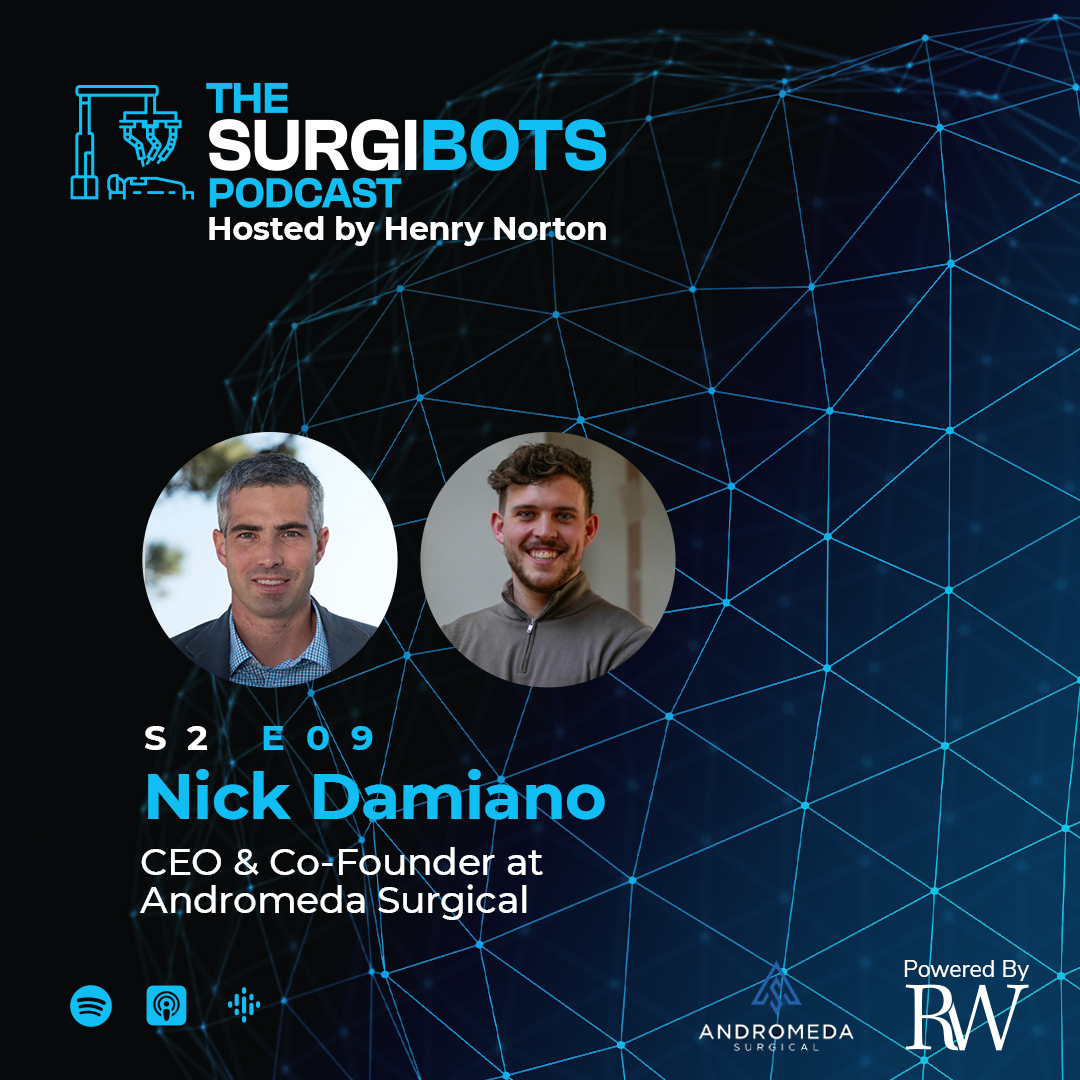Autonomous surgical robotics are still a thing of the future. However, when I spoke to Nick Damiano, the CEO & Co-Founder at Andromeda Surgical, on Season 2 Episode 9 of The Surgibots Podcast, he explained how he’s bringing them closer than ever before. As a third-time founder and veteran of the medical devices space, Nick is perfectly placed to talk us through groundbreaking tech and how to shape the industry and the wider public’s perceptions of it.
It seems like autonomous driving and autonomous surgery are quite far away from each other. So how do the same principles translate from self-driving cars to surgery?
It's very interesting to compare and contrast those two spaces. It is fundamentally the same challenge at heart - you're trying to understand the world that you're operating in and make autonomous decisions based on that. At a very basic level, it's the same challenge.
However, there are a lot of differences when you get into the details. One thing with the driving world is a lot more complex than surgery, or at least the procedure we're doing, which is the number of variables. When you think about a car and everything it might encounter as it's driving around, there are so many different edge cases that you wouldn't get in human body surgery. The human body is pretty variable, and you get weird anatomies or unexpected things that come up during the procedure, but it's a much smaller set of things that can happen than in the entire world, which is where automotives exist.
That said, the data you can collect to train models in surgery is a lot smaller than the data set you can get in driving. You can't just drive a surgical robot around people's bodies continuously like you could for a car, so something that balances the lack of complexity is the sparsity of data.
When you bring up autonomous robotics, how do agencies like the FDA react?
AI and autonomy definitely raise some alarm bells with the FDA. There are going to be some safety concerns when they come up. We didn’t get into too many details in our initial meeting, but it was a big topic of discussion later on.
However, even without the FDA being there, we're very safety-focused. Even though we're trying to move fast, we want to make sure that we can feel confident that this product is going to be safe and deliver the results that we want it to every time. We had already developed a suite of tests, and we'd deliberately thought about the procedure and the features we were building for this first version of the product and made sure we weren't building anything that was too crazy or risky in the beginning.
As a result, the FDA conversation so far has been really productive. Being transparent and straightforward and showing them that we do care about safety and helping patients was really beneficial. We also want to make sure they're aware of the benefits, not just the risks. That's something a lot of companies are afraid to bring up, but balancing the conversation in that way seems like it's going really well so far.
Do you think there is a need for a patient education piece when it comes to autonomous surgery?
Yes. We’re seeing parallels with the early days of DaVinci and what we've seen with autonomous vehicles. When you compare this to autonomous vehicles, we are taking a similar approach to where Tesla sold these cars initially and started training the autonomous features in the background as people were driving manually, as opposed to the way Moe and Cruz launched their fully autonomous cars. Whether it was deserved or not, the latter have gotten a lot of bad press, and there has been a lot of fear around those products, even if they are beneficial on the whole. People focus on specific incidents where the car got in an accident, and we're going to have to face a lot of the same.
We want to make sure that we are ready for that messaging effort. That means building incrementally in a way that keeps safety at the focus. The fact that we have a skilled human surgeon who's trained on these procedures in the loop is a big help in itself because the result will be a collaboration between the surgeon and the AI. We have a human involved who can prevent some of the bad outcomes from happening. Even though we want to move fast, we have to slow down to make sure that we build every incremental step of autonomy safely.
To find out more about Andromeda Surgical’s work and Nick’s perspectives on surgical robotics, tune into Season 2 Episode 9 of The Surgibots Podcast above, or on Spotify, Apple Podcasts or Amazon Music.





